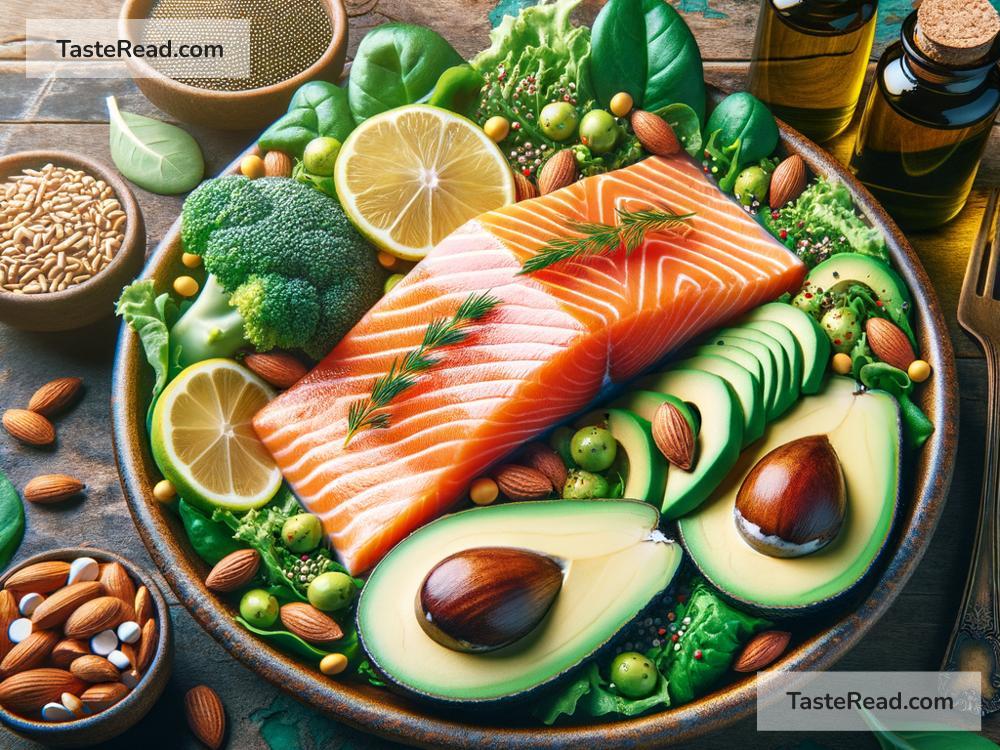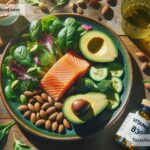The Role of Vitamin B3 in Cholesterol Management
Cholesterol—it’s a word we hear often when talking about health. Too much “bad cholesterol” can lead to heart disease, while “good cholesterol” helps keep our arteries clean. Managing cholesterol levels is important, and one surprising helper in this battle is Vitamin B3, also known as niacin. But what is Vitamin B3, and how does it help with cholesterol? Let’s break it down in simple terms.
What Is Vitamin B3?
Vitamin B3 is a nutrient your body needs to stay healthy. It’s part of a group of vitamins called the B vitamins, which help your body turn food into energy. You can find Vitamin B3 in foods like chicken, fish, nuts, and grains, and you can also get it as a supplement.
One interesting thing about Vitamin B3 is that it plays a special role in heart health. That’s because it has the ability to affect your cholesterol levels, which are key markers for how healthy your heart and arteries are.
What Is Cholesterol?
Cholesterol is a waxy substance in your blood. Your body needs it to make hormones and build cells, but too much cholesterol can cause problems. There are two main types of cholesterol:
1. LDL (Low-Density Lipoprotein): Often called “bad cholesterol,” LDL can stick to the walls of your arteries, making them narrow and hard. This is dangerous because it can lead to heart attacks and strokes.
2. HDL (High-Density Lipoprotein): Often called “good cholesterol,” HDL helps remove LDL from your arteries and transports it to your liver to be broken down.
When your LDL is too high or your HDL is too low, it’s time to take action—and this is where Vitamin B3 comes in handy.
How Does Vitamin B3 Help with Cholesterol?
Vitamin B3, or niacin, plays a big role in cholesterol management. Here’s what it does:
-
Lowers LDL (Bad Cholesterol)
Niacin can help reduce the amount of LDL cholesterol in your blood. Studies have shown that it works by slowing down how much LDL your liver produces. When there’s less LDL being made, there’s less of it clogging up your arteries. This is great news for anyone trying to keep their heart healthy. -
Raises HDL (Good Cholesterol)
Niacin is also one of the most effective ways to increase your HDL levels. It boosts the production of HDL in your body, which can then sweep away LDL and keep your arteries clear. Higher HDL levels are linked to better heart health, so this is a big win. -
Reduces Triglycerides
Triglycerides are another type of fat in your blood that can contribute to heart disease. Niacin helps lower triglyceride levels by preventing your liver from making too much of them. Lower triglycerides mean less risk for heart problems.
Niacin vs. Medications: Which Is Better?
If you’ve struggled with cholesterol, your doctor may have recommended medications like statins. Statins are very effective at lowering LDL, but they don’t boost HDL as much as niacin does. This makes niacin a unique tool when it comes to balancing cholesterol levels.
However, niacin doesn’t replace medications entirely. Instead, it’s often used alongside them to maximize the benefits. It’s important to talk to your doctor about the best approach for your specific situation.
Are There Any Side Effects?
While niacin has many benefits, it’s not perfect. At high doses, it can cause side effects, which is why it’s crucial to use it under a doctor’s supervision. Common side effects of niacin include:
– Flushing: This is when your skin turns red and feels warm. It’s harmless but can be uncomfortable.
– Upset stomach: High doses of niacin might irritate your stomach.
– Liver issues: In rare cases, very high doses can affect your liver.
Because of these potential side effects, niacin should never be taken in large amounts without medical guidance.
How to Get More Niacin Naturally
The good news is that you don’t have to rely on supplements to get niacin—you can find it in everyday foods. Some of the best sources of Vitamin B3 include:
– Chicken
– Turkey
– Fish (like tuna and salmon)
– Peanuts
– Brown rice
– Whole wheat bread
By including these foods in your diet, you can give your body a natural boost of niacin.
Final Thoughts: A Helping Hand for Your Heart
Vitamin B3, or niacin, is an important nutrient that goes beyond helping your body produce energy—it’s a powerful ally in managing cholesterol. By lowering LDL, raising HDL, and reducing triglycerides, niacin can improve your heart health and reduce your risk of problems like heart attacks and strokes.
Whether you get niacin from food or supplements, always talk to your doctor before making changes to your health routine. With a balanced diet, regular exercise, and a focus on heart-friendly habits, you’ll be giving your body the tools it needs to thrive.
So, the next time you hear about cholesterol, remember the role Vitamin B3 plays in keeping your heart happy and healthy!


